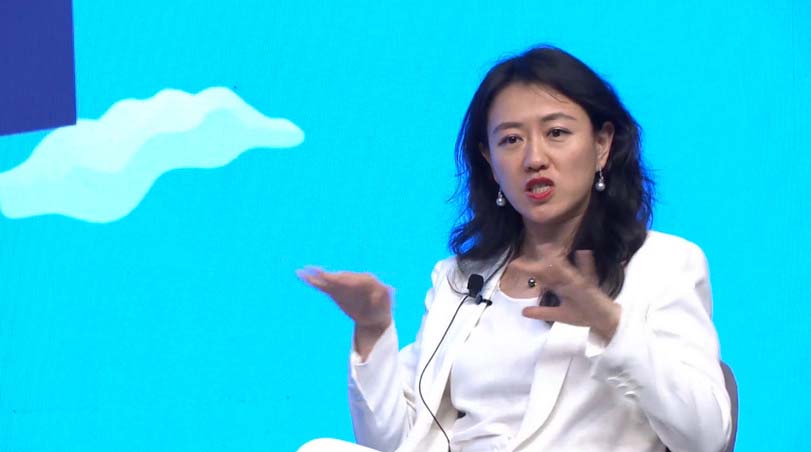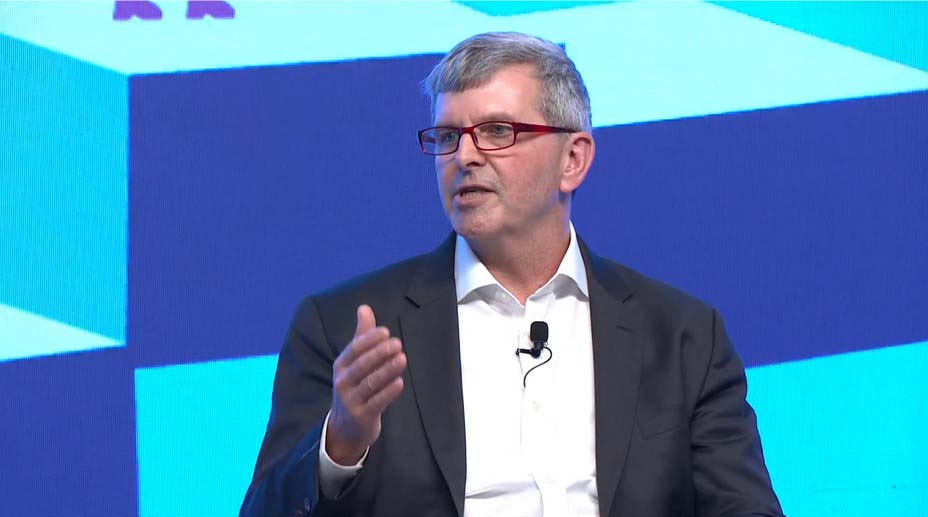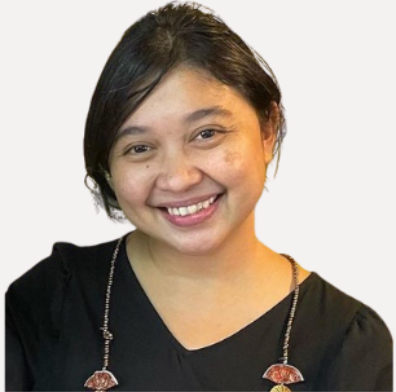June 28, 2024
MANILA – Pushing for gender parity does not mean pulling down men so women can get ahead of the pack, this was the central message of a panel on parity and growth in the ongoing World Economic Forum (WEF) in Dalian, China.
Liu Qian, an economist and one of the panellists, emphasised that in the medium to long term, investment in people always has a higher return than investing in financial products. She spoke at a panel titled When Parity Means Growth at WEF’s Annual Meeting of Summer Champions held from June 25-27, in Dalian, China.
“If you invest in the US stock market and securities, for instance, the annual return is 2.4 percent. But if you send someone to school, you’re guaranteed an 8.8 percent annual return for the rest of your life,” she explained. “And I’m very pleased to share that returns on girls are always a lot higher than on men.”
With this, she mentioned, for one to be able to contribute to society, one has to be well-educated first. “So if I were to argue for the growth of the global economy, I would argue one of the most fundamental things is investment in human capital.
Send people to school, especially, send girls to school,” said Qiang, who is the founder and chief executive officer of Wusawa Advisory, Inc., which helps clients navigate complex and divided geopolitical and business environments.
Indeed, advancing women’s employment could add US$12 trillion to the global GDP and boost some countries’ economic output by as much as 35 percent, according to the WEF.

Liu Qian is the founder and chief executive officer of Wusawa Advisory, Inc which provides balanced and critical advisory services to clients who need to navigate through complex and divided geopolitical and business environments. PHOTO: SCREENGRAB/WORLD ECONOMIC FORUM/ASIA NEWS NETWORK
Qian acknowledged that some find it difficult to accept the concept of gender parity for fear it would affect their benefits or incentives or that women are out to take their jobs away from them. “Let me take this opportunity to clarify, that’s not the case. We don’t want to be more senior than men, we just want equal opportunities and equal possibilities.”
She stressed that achieving gender equality is not only good for women but also for men, future generations, and for long-term global economic growth.

Nurul Izzah Anwar is the chairperson of Social & Economic Research Initiative, a non-partisan think tank dedicated to advancing evidence-based policies that bridge the gap between the haves and the have-nots. PHOTO: SCREENGRAB/WORLD ECONOMIC FORUM/ASIA NEWS NETWORK
“Gender parity means parity. We’re not trying to beat men down or anything like that. But by empowering women, we will truly have a better and more sustainable growth for the world,” Qian added.
Having the principles laid out is one thing, ensuring these are enacted is another. In terms of policy and regulation, we have to be a bit more adaptive and flexible, as well as employ a more sophisticated, more diverse approach, suggested Nurul Izzah Anwar, chairperson of the Social & Economic Research Initiative (SERI) and also one of the panellists. SERI is a non-partisan think tank dedicated to advancing evidence-based policies that bridge the gap between the haves and the have-nots.
“Some existing laws require tweaks and it goes only so far in order to try and change society. So in that sense I feel that after the pandemic, (all the) more the reason for safety nets to be in place to address the needs of women from the lower income, the more vulnerable segment,” the Malaysian activist and former legislator said.
Just like Qian, Anwar recognizes how gender parity can cause a “backlash.” “(In Malaysia) young men are less academically oriented but extremely right wing. Whereas young women are going up the tertiary ladder, but becoming far more liberal and open-minded and progressive. That, of course, creates some degree of tension,” she shared.
Following through on Anwar’s statement, Qian said: “That’s why there must be strategies to take men, especially young men along, wholeheartedly by making them feel it’s also good for them,” she said.
On a practical level, she said it helps to give men motivation. “Economists always talk about motivations. When they do something right, let’s praise them. Give them the carrots so they’d be more interested to get the reward,” she said.
Referring to the audience, Qian said men their age didn’t grow up with the perfect male models. “They’re (men) lost as well, so let’s be a bit more understanding and tell them what we want, and at the same time, give them the carrots (and motivation) so they’d be more motivated to do better and do more of that.”
William Warshauer, the only male member of the panel, admitted there is “no panacea, no easy answer” to the gender parity conundrum. But while there are no quick solutions, he said there are simple things that they do at Technoserve, a poverty alleviation organisation, where he serves as president and chief executive officer.
“We now only train in couples, the man and the woman, together, which helps ensure that both the partners have skills,” he shared. “To ensure that the man knows what the woman is learning and hearing and vice versa, and ensure that they share success.”

William Warshauer is the president and chief executive officer of TechnoServe, a poverty alleviation organisation that has been offering business solutions to poverty. PHOTO: SCREENGRAB/WORLD ECONOMIC FORUM/ASIA NEWS NETWORK
Warshauer shared that in 2023, about 160,000 were able to increase their income with the help of Technoserve, either by farming or through small businesses.
“The fact that it’s (gender parity) on the agenda is encouraging. The fact that all of us here are having this conversation means that the people in this room will go back and influence their governments, their companies, their company’s suppliers and partners,” he said. “That’s encouraging, but to really make change it’s got to filter down. It’s not just enough for us at the top to talk about it.”
Qian agrees, saying there are many frameworks and key performance indicators but the focus should be on getting these done. “Instead of focusing on increasing numbers, focus on the work itself and the results will come,” she said.
This session is linked to the ongoing work of the World Economic Forum’s Global Gender Parity Sprint, a global platform bringing together businesses, governments, and international organizations to accelerate economic gender parity by 2030.


